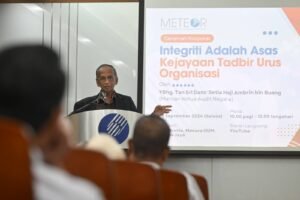The Controversy

In the lush forests of Terengganu, a taxpayer found itself entangled in a contentious tax dispute over timber extraction rights. The case centered on a payment of RM925,000 made in 2010 to Syarikat Kuruak Sawmill Sdn Bhd (SKS) under a Sale and Purchase Agreement. The taxpayer, engaged in timber extraction and trading, claimed this payment as a deductible expense under Section 33(1) of the Income Tax Act 1967 (ITA).
However, the Director General of Inland Revenue (DGIR) disallowed the claim under Section 39(1)(g) of the ITA, arguing that the payment was not for timber purchase but for the exclusive right to extract timber from the land. This interpretation triggered an additional assessment for the Year of Assessment (YA) 2010.
The Clash Over the Agreement

The taxpayer insisted that the payment was part of a stock purchase expense, citing that SKS had not transferred its license to the taxpayer. “This is a straightforward purchase of timber,” the taxpayer argued. “The expense is deductible under Section 33(1).”
But the DGIR countered, presenting the Agreement’s details as evidence. “The taxpayer assumed all responsibilities under the license issued to SKS, including paying royalties, maintaining roads, and abiding by permit conditions. This is not a simple sale—it’s a transfer of operational rights tied to the permit.”
The Court’s Verdict

The taxpayer appealed to the High Court, arguing that the Agreement did not transfer the license and that prior cases, such as Hup Cheong Timber, supported their claim.
However, the High Court found significant distinctions between the cases. “The taxpayer in Hup Cheong Timber held the license. In this case, SKS retained the permit, but all operational rights and responsibilities were effectively transferred to the taxpayer,” the court ruled.
Finally, the Court of Appeal affirmed the High Court’s decision. “The nature and character of the Agreement reveal an intent to grant the taxpayer rights to use the permit, not merely to purchase standing timber,” the judgment stated. The Court upheld the additional assessment and a penalty of up to 100% under Section 113(2), awarding RM10,000 in costs to the DGIR.
The Lesson Learned

This case underscores a fundamental principle in tax law: the nature and character of agreements take precedence over their form.
- For taxpayers: Understanding the implications of contractual terms on tax treatment is critical. Agreements that involve operational rights or obligations may fall outside the scope of deductible expenses under Section 33(1).
- For tax practitioners: Thorough due diligence in structuring agreements is necessary to ensure compliance with tax provisions. Misinterpretations or broad assumptions about deductibility can lead to costly disputes and penalties.
- For taxation in general: What matters most is not just what is written, but how the agreement aligns with the true intent and substance of the transaction.
Relevant Laws
- Seksyen 39(1)(g) Akta Cukai Pendapatan 1967






